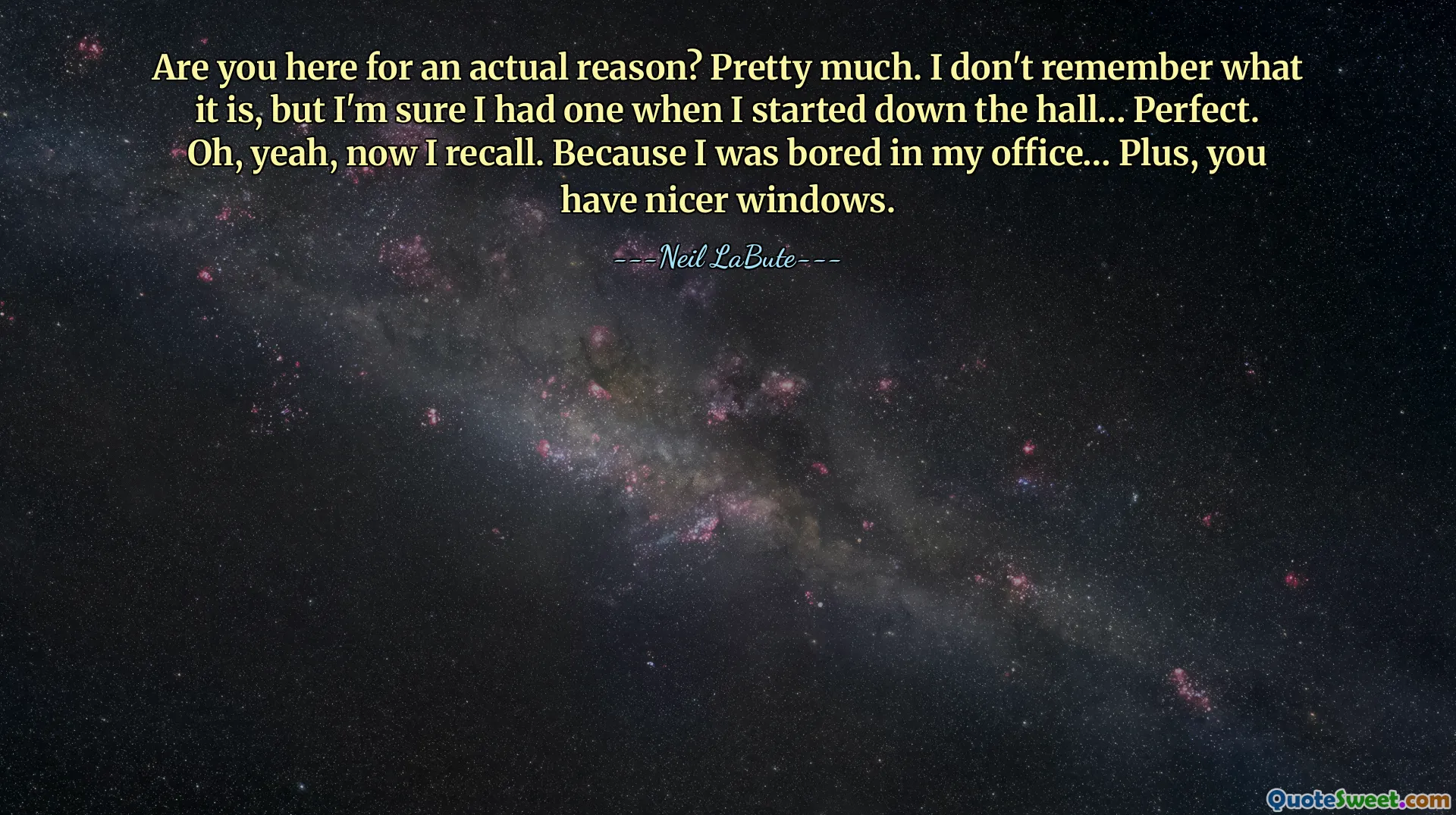
Are you here for an actual reason? Pretty much. I don't remember what it is, but I'm sure I had one when I started down the hall… Perfect. Oh, yeah, now I recall. Because I was bored in my office… Plus, you have nicer windows.
This quote captures a slice of everyday banter that reveals much about human nature and the subtle motivations that often drive our actions. The conversation humorously depicts a moment where the characters admit to being unsure of their purpose, highlighting a universal tendency to sometimes engage in activities out of boredom rather than a clear goal. The humor lies in the candid honesty—one character suggests their presence is almost accidental, simply because they prefer the nicer windows, a detail that underscores how superficial or trivial motivations can sometimes underlie our routines.
The exchange also invites reflection on the notion of work and the everyday routines we consider purposeful. It pokes fun at the idea that not all actions are driven by meaningful intent; often, people may just be occupying themselves, seeking comfort, or simply filling time. The mention of windows may symbolize the workplace environment—a literal and metaphorical view of what’s external versus internal commitment or motivation.
This snippet serves as a reminder that beneath the veneer of purpose, many of our behaviors are casual or driven by mundane reasons, making us relatable. It also hints at the importance of finding small pleasures—like a view—within more routine aspects of life. The humor is understated but insightful, acknowledging that sometimes the best reason to do something is because it makes us feel better or more comfortable, even if that reason is as simple as the view outside.
Overall, this reflects a human tendency to sometimes embrace the superficial or trivial, which leads to a greater understanding of our own complex and often irrational motivations. It underscores the importance of humor and honesty in navigating mundane moments with self-awareness and a touch of practicality.











